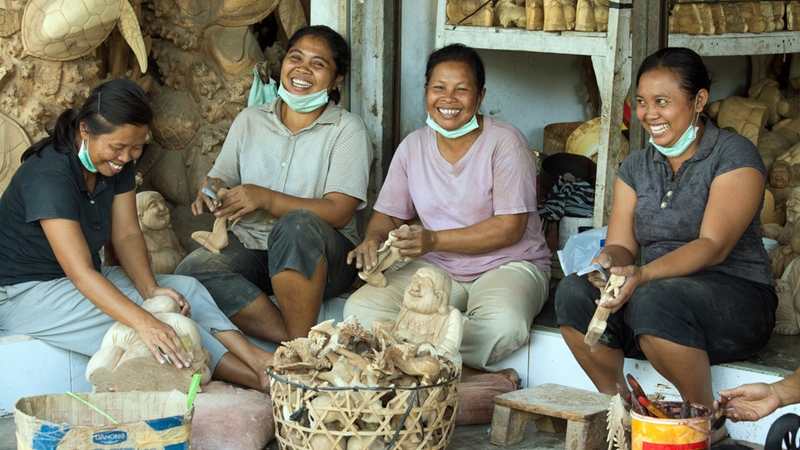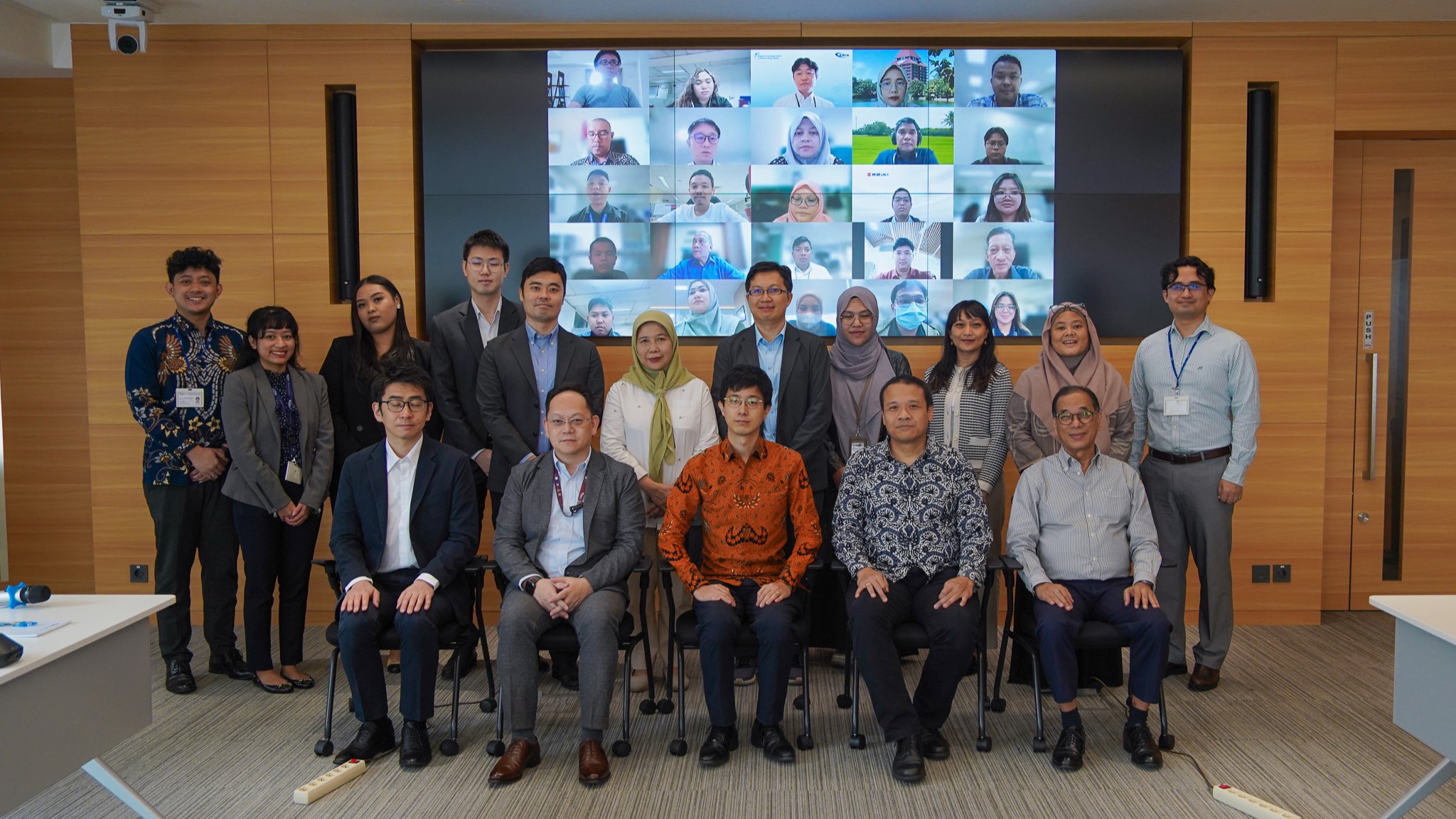Asean Unity in the Age of Coronavirus
Share Article:
Print Article:
By Kavi Chongkittavorn, Senior Communications Advisor: The opening ceremony of the 36th Asean Summit in Hanoi last Friday, attended by a roomful of local and foreign dignitaries, was a definite "ooh-aah" moment for Vietnam, which has been successful in mitigating the spread of coronavirus. Prime Minister Nguyen Xuan Phuc was brimming with confidence as he gave his opening remarks, which were transmitted via teleconference to his nine Asean colleagues, some of whose countries are still in partial lockdowns.
Kudos must go to the current chair for beating the odds and staging a successful virtual Asean summit, the first in the grouping's 53-year history. It demonstrated its ability to adjust to, and overcome, any unprecedented or unpredictable development, both in the region and globally.
It is clear that the Covid-19 pandemic has further enhanced Asean centrality and unity. At the global level, the pandemic has widened the schism between the major powers, especially the US and China. Their conflict has gone beyond trade and proliferated into other spheres, which have far-reaching repercussions for the rest of the world in unimaginable ways. As such, it is imperative for Asean to stick together to face the challenges posed by these external shocks.
Fortunately, Asean continues to have a powerful convening power and can draw in great nations to work together and reduce confrontations. Since the outbreak, Asean has been able to engage major dialogue partners in advancing essential cooperation in the prevention and mitigation of coronavirus. It has held virtual summits within the region and beyond, with three other countries (China, Japan and South Korea). At the foreign ministerial level, Asean has met online with its counterparts in the US, China, the EU and Russia. Asean and Australian foreign ministers have also agreed to also hold a virtual conference on the coronavirus.
Asean is hoping that through its Asean Outlook on the Indo-Pacific (AOIP), dialogue partners will be able to cooperate in selective areas to promote mutual trust, mutual respect and mutual benefit through Asean-led initiatives. Due to the pandemic, new challenges relating to health security, human security and food security have also emerged. That helps explains why the Asean leaders strongly support multilateralism, free and open trade and regional economic integration. They expect to sign a Regional Economic Partnership along with China, Japan, South Korea, Australia and New Zealand in November.
Although the summit zeroed in on the impacts of Covid-19 and how all Asean members can work together to lessen the impacts and live under this "new normal", Asean leaders also discussed issues affecting the regional strategic environment, with the South China Sea conflict, the Rakhine crisis and the situation on the Korean Peninsula top of the agenda.
Several interventions were made during the discussions. For example, the Asean members most involved in the South China Sea conflict -- Vietnam, Malaysia and the Philippines -- discussed the latest developments in the disputed maritime areas and expressed their hope of a resumption of negotiations on the Code of Conduct (COC), which have been disrupted by the pandemic. Physical negotiations are necessary for the second reading of the draft between Asean and China. Beijing hopes the COC will be completed by next year when Brunei Darussalam is the Asean chair. However, the current chairman's statement did not mention "the mutually agreed timeline" over the COC's conclusion.
In relation to the Rakhine crisis, Malaysia urged Myanmar to do more to improve the situation. As a whole, Asean reaffirmed its support of Myanmar's ongoing efforts to ensure the safety and security of all communities in Rakhine, including facilitating the voluntary return of displaced people. Currently, Indonesia, Thailand, Singapore and the Philippines are providing humanitarian assistance, including agriculture and education. With the easing of the lockdowns and the containment of coronavirus, ongoing activities by the Asean Secretaries and related agencies will resume to facilitate the repatriation process and to promote sustainable development.
Another deliverable under Vietnam's watch has been the Covid-19 Asean Response Fund, which was proposed by Thailand to ensure that the Asean members would be able to have funding available when needed to fight against this and future pandemics. Thailand itself used the occasion to contribute US$100,000 to the fund. "It is important to show that Asean has ownership of this scheme," said a senior Thai official responsible for Asean affairs. According to the terms of reference, contributions are voluntary. South Korea has already committed US$5 million out of the existing Asean-South Korea Development Fund.
The coronavirus has necessitated that the all three pillars of Asean -- political/security, economic and social/culture -- work together more closely due to their cross-cutting nature. The leaders have tasked all concerned officials under the Asean Coordinating Council to come up with a comprehensive recovery framework, which will be tabled at the Asean summit in November.
The 8,550-word statement issued after the summit by the chairman emphasised that Asean respects and supports a rules-based regional and international order, in accordance with the universally recognised principles of international law. From now on, Asean will enhance its external relations with all international stakeholders to increase its international profile. Currently, both Indonesia and Vietnam are non-permanent members of the United Nations Security Council.
Another important document adopted was the Asean Leaders' Vision Statement on a Cohesive and Responsive Asean: Rising Above Challenges and Sustaining Growth. This 3,706-word text focuses on the grouping's future action plans and encompasses an entire must-do list for Asean cooperation across all dimensions. Indeed, it says that in order to make Asean cohesive and responsive, all members must contribute in any way they can. From the Vietnamese perspective, concepts of "cohesiveness" and "responsiveness" are interlinked, as a cohesive Asean can respond effectively and promptly to any challenges, whereas a responsive Asean would further strengthen its cohesion.
It is interesting to note that senior Asean officials were ordered to promptly consider the leaders' vision statement, which was sent to the members' capitals just a few days before the summit. Vietnam's zero draft was submitted to other Asean countries for consideration and consultation as long ago as January but there has been no communication since then due to the coronavirus.
Vietnam said it was hoping the upcoming Asean Foreign Ministerial in late July and the 37th Asean summit in November will be conducted face to face. However, taking account of the availability of leaders and the overall condition of lockdowns, it is possible that the post-ministerial conference could be in a hybrid format, with some Asean representatives meeting in person but by teleconference with their dialogue partners.
This opinion piece was written by ERIA's Senior Communications Advisor, Kavi Chongkittavorn, and has been published in The Bangkok Post. Click here to subscribe to the monthly newsletter.







